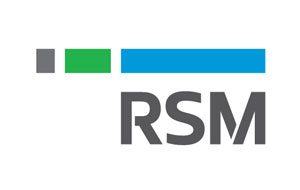
The foundation of any successful business strategy is market intelligence. Being informed means you can make competent decisions about your business’s direction and have the foresight to predict and be prepared for the
challenges ahead.
Market intelligence means knowing the context of the economic environment you are operating in, understanding your consumer, and how your product or service plays a role in their work or home life. It also means understanding your competitors’ business and marketing investment strategies.
“…many businesses have large amounts of internal customer and sales data, but not the time or the expertise to analyse it effectively and make it meaningful.”
Having market intelligence is an investment in time and effort. Objectively reviewing the market situation and competitive landscape and accessing reputable and reliable market research and distilling this information into meaningful business decisions is an empowering experience.The benefits gained from having this “inside knowledge” enables a business owner to manage risks from market pressures and predict changes. It gives a business the agility to transform weaknesses into strengths and the confidence to take advantage of opportunities that will deliver their goals.
Many think only large international or national companies benefit from market intelligence. In fact, market intelligence is equally important to the success of Canberra businesses, large or small.
For Canberra businesses to be market intelligent, there are three key enablers:
Local market knowledge
Looking at the “big picture” helps an owner understand the broader market and economic impacts on their business,and helps anchor their business plan in the context of the Canberra marketplace. Canberra often runs counter to the national norms, so having localised market knowledge can be the difference between making the right or the wrong decision.
Canberra is a unique marketplace in Australia, heavily influenced by its role as Australia’s capital city and home of the Federal government. Understanding the market dynamics, economic trends and effect of the election cycles on the market are fundamental to operating successfully. The effect of Federal Government policies, such as efficiency dividends have knock-on effects that broadly impact many industries in the ACT, from population movements across town centers resulting from office relocations through to outsourcing opportunities for the private sector.
For established businesses looking for growth opportunities, it is a challenging environment, reaching saturation more quickly than other jurisdictions, with high levels of competition. In some major sectors such as ICT, there are over 1,000 businesses operating in Canberra, and underneath the calm exterior, it can be a hothouse of competition.
In the retail sector, the introduction of global “big box” chains has introduced a level of retail competition that is unprecedented in our local market. The effect of increasing competition combined with reduced household discretionary expenditure is placing significant pressure on many local retail businesses.
It’s important to be aware of the overall economic challenges in the ACT. Understanding the marketplace and how your business interacts with the local industry environment will identify ways that you can turn challenges into business opportunities.
Consumer insights
It is easy to be caught up in a small market mentality when investigating market research data and put it in the “too hard basket”. Whether your target “market” is a young parent with children or a government department head, understanding the target beyond their basic demographic profile or job title provides insights into how your business or product best services their need or interacts with their world.
Informing and building your market knowledge through sourcing appropriate market research can deliver some powerful insights. Consumer insights will identify your target’s demographics, attitudes, life stage, lifestyle, purchase behaviour, psychographics and values. This information informs your brand positioning and key selling proposition. Identifying key insights into the lifestyle and media consumption will enable marketing to be targeted effectively, in context at a time when the target consumer will be most receptive to your message.
There are several ways of accessing valuable data:
- Bespoke qualitative and quantitative research is more accessible and affordable for smaller businesses with developments in technology and online data collection.
- Taking the time to communicate with your product and service users about their experiences and attitudes will provide insights into the aspects of your business that are most valuable to your customers. It helps identify gaps in service delivery or product specifications, customer service issues or product problems. It also enables a measurement of your brand and customer relationships and purchase intention.
“Canberra often runs counter to the national norms, so having localised market knowledge can be the difference between making the right or the wrong decision.”
- Omnibus research from reputable national companies provides “off the shelf” data that can provide comprehensive consumer market data, including demographics, psychographics, attitudes and behaviour for a large number of industry categories.
- Accessing existing economic and market data from industry and government sources provides a big picture view of economic and industry trends.
- The amount of research data available can be overwhelming. Additionally, many businesses have large amounts of internal customer and sales data, but not the time or the expertise to analyse it effectively and make it meaningful. Having this data interpreted and analyzed by a team of business and marketing analysts, will draw out the implications and challenges for your business and place the data in context that is usable and useful to your decision making.
Competitor analysis
Who are your competitors? Knowing your competitors and understanding their business strategy and operational tactics, means that you can defend against their strengths and take advantage of their weaknesses.
- Knowing your competitor’s target consumer or business and their key selling proposition enables you to position your business to the best advantage.
- Understanding your market share and your competitors’ market share can provide context of the development of your category and sector. Understanding the level of market saturation enables a business to position
itself to advantage for expansion and growth. - Advertising spend data is available by category, so it is advisable to review your “share of voice”. Competitive and category analysis can show whether or not competitors are investing ahead or behind their market
share.Reviewing your competitors marketing strategy and investment and understanding “share of voice” will inform strategic decisions to optimize your own marketing spends. - Knowing the distribution of your competitors’ products or services may identify gaps and opportunities for expansion or diversification of your business.
A competitor analysis will provide inside knowledge about why your business may be facing issues, or open up potential opportunities. Having an evaluation of how your competitors respond to market pressure and competitive tactics, will enable your business to adapt to changes with confidence and make informed decisions.
How to become market intelligent?
Market intelligence (market knowledge, consumer insights and competitor analysis) is critical to all businesses, especially those at their start-up and growth phases. Large national and international companies invest
heavily in systematic and regular acquisition of market intelligence; whilst many small and medium-sized enterprises (SMEs) do not have the budget or time. Without adequate market intelligence, SME owners and managers tend to rely on informal impressions and unverified conjectures to make critical strategic decisions, which might leave the business in a dangerous competitive blind spot.
An experienced market intelligence advisor can help you steer clear of these blind spots. For Canberra SMEs, when choosing a market intelligence advisor, look for firms who have extensive local knowledge and are
budget-conscious.
Kirsty McGovern-Hooley Senior Manager – Market Intelligence, Business Advisory RSM Australia
Prior to joining RSM, Kirsty held senior planning roles in one of Australia’s leading advertising and marketing agencies. She then relocated to Singapore to pursue an opportunity managing Asia-Pacific and global brands including Nokia and Hewlett Packard. Kirsty has experience working on some of the largest blue chip clients across a broad range of industries, including human services, IT, communications, hospitality and retail. Her experience also encompasses federal and state government cooperative marketing initiatives in the tourism industry. Since returning home to Canberra, Kirsty has worked with a large number of local SMEs, including disability and community services, sport and recreation, education and food services. Kirsty applies a wealth of global and national experience with a local Canberra sensibility to her advisory role. Kirsty also invests personal time in community advocacy, holding an executive position on the ACT Council of Parents and Citizens and is a board director of The Healthy Kids Association.
For a no obligation consultation with
Kirsty McGovern-Hooley, Senior Manager at
RSM Australia in Business Advisory, contact
her on [email protected]
or (02) 6217 0317

